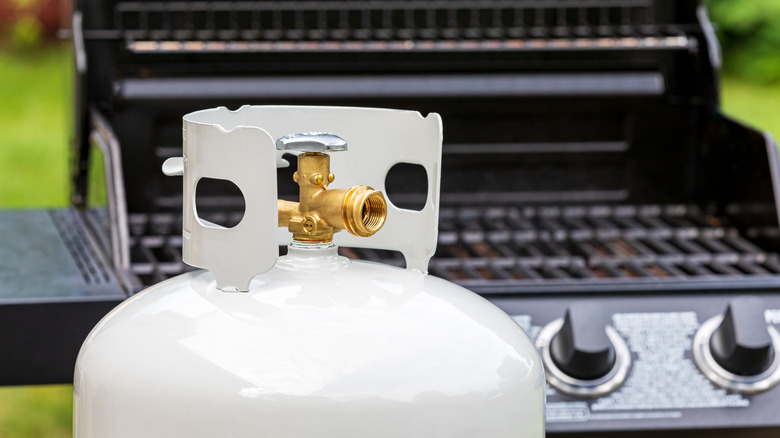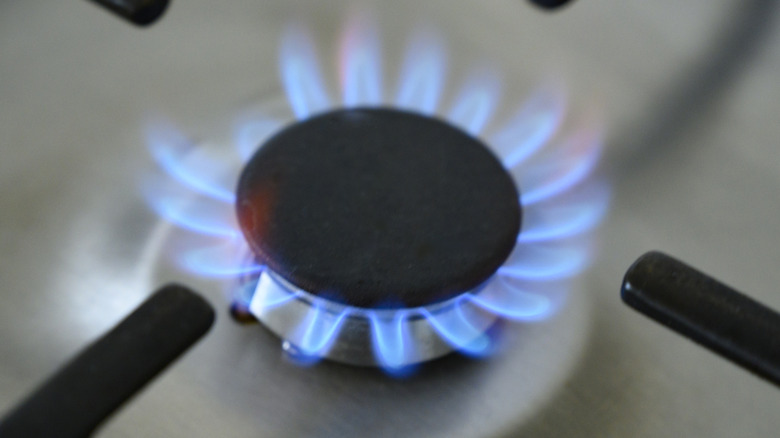Keep Your Nose Peeled This Summer For The Smell Of Propane Leaks
As the summer season of outdoor cookouts gets underway, home chefs everywhere are burping the grill's propane tank and firing up the burners. Lots of grills rely on propane (and its assorted accessories) because it's high-octane and clean-burning, which means it lights up quick and it's not an environmental hazard. Even if propane is healthier than charcoal, a gas leak can be extremely dangerous, because you've now got an invisible, flammable gas floating around you while you're working with fire. If you're new to grilling, remember that the easiest way to test for gas leaks is to sniff around for pungent, sour smells around the grill.
While propane gas doesn't normally have an odor in its natural state, the propane you use to cook has been artificially scented. Typically this smell comes from ethyl mercaptan, a liquid which has a familiar rotten aroma, kind of like skunks or rotten eggs. Most propane gas meant for home use is treated with this, allowing you to notice the pungent scent floating around an area it shouldn't be. If your grill is completely shut off, there should be no smells beyond whatever food is cooling beside it. Trust your nose.
Going beyond the smell test for propane leaks
It's considered safe practice to inspect your grill if you haven't used it in a while, like at the beginning of summer, for example. Look it over even more closely if it's new and you haven't used it yet. Besides bad smells, any odd hissing sounds around your equipment should be investigated immediately, because this can sometimes be the sound of gas loudly escaping through an opening. Certainly check the propane tank itself for any cracks, or damage to the container or rubber seal. If it needs to be said, you should never fire up the burners — ever — if you suspect there might a leak.
The rotten smell is a guarantee that something is wrong, but if you're still on the fence about whether or not you smell anything (or if you're not sure where exactly the leak may be), you can try the soap bubble test. It's pretty straightforward: mix together an equal amount of dish soap and water, and spray or brush the mixture onto all the connecting parts of your propane tank and grill. If there are any leaks, you'll see soap bubbles forming over the spots where gas is coming out. It's somewhat similar to checking your grill's propane levels with a cup of water that's been boiled, but that's designed more for determining whether your propane levels are low. With a few propane safety tips in your back pocket, you can focus on what really matters this grilling season: the food.

